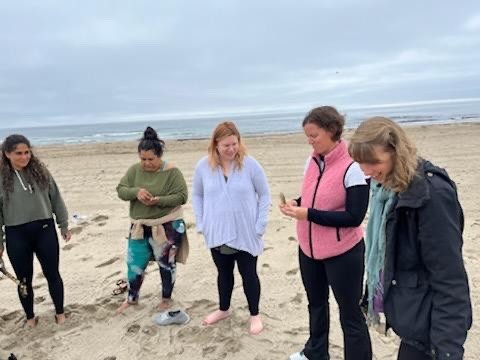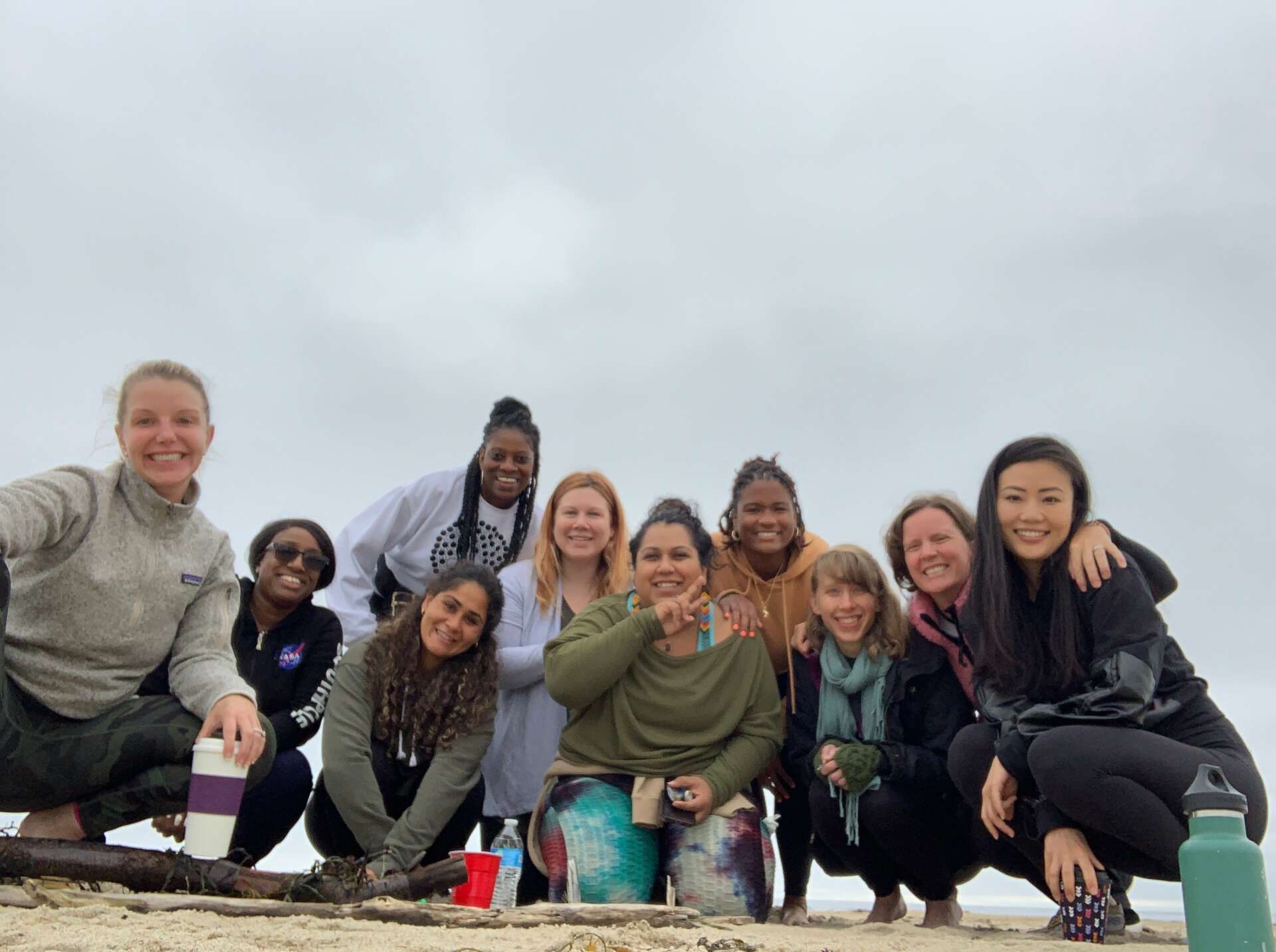We’re excited to introduce you to the always interesting and insightful Kristy Norbert. We hope you’ll enjoy our conversation with Kristy below.
Alright, Kristy thanks for taking the time to share your stories and insights with us today. Let’s start with a story that highlights an important way in which your brand diverges from the industry standard.
Empower Her Network is a very different and innovative service provider. Most organizations providing direct care to marginalized populations have a prescribed program to follow. They require participants to check off boxes to receive services. Most of the time these requirements are because of funding restrictions, safety precautions, and for outcome measurements. All of those are important. And, too many requirements leave a lot of room to exclude too many people.
Empower Her Network has requirements as well, but we don’t have a prescribed program that meets every participant in the same way. We work with survivors of human trafficking, after they have left the life, and after they have received stabilization services. They don’t have to come to EHN, they get nominated to join our network of services. It’s a very different model and takes time for survivors to see us differently than their previous case managers. We are focused on THEIR goals, THEIR dreams, and the barriers that are in the way. We ask them things like “Where do you want to be in two years?” Many times, this is the first time they are being asked that question.
In addition, the industry standard is to have clients go through their prescribed program, which is the same for everyone. At EHN, we call clients members, and members create their own Empowerment Plan (think blueprint), that they want to follow to get to their goals and economic freedom. We don’t do the work for them but hold them accountable in the way they want to be held accountable, to accomplish their goals. It’s true empowerment and allows members to view themselves as partners and the drivers in their own lives.


Kristy, before we move on to more of these sorts of questions, can you take some time to bring our readers up to speed on you and what you do?
Empower Her Network (EHN) works with trafficking survivors on paths to fiscal independence by removing housing barriers, providing advocacy, financing education, and uncovering viable career paths. No one “saves” the women who are part of our network. They tell us what they need – the barriers that stop them from taking their journey to new heights, and we help break them down.
As a trained social worker, I have over 20 years of clinical programming experience and proven leadership. In the anti-trafficking community, organizations who were providing the first stop for trafficked victims found the same clients cycle in and out of their doors. With the help of EHN Co-Founder Abby Fabiaschi, we knew together we could create a graduated service program for survivors to break generational cycles of exploitation and poverty. We also vowed to be disrupters and not fall into the common pitfalls we had experienced with other nonprofits; staff burnout, “savior” boards wielding power without insight; overlapping resources that waste charitable dollars; compromising between operating expenses that turnoff donors and the right expertise to be successful. We also vowed to only do this in partnership and collaboration with all of the existing organizations in the anti-trafficking movement.
In November of 2017, EHN launched a pilot program serving four survivors in New York City. Immediately, a wait list formed. After a writeup in theSkimm, calls poured in from national aftercare programs that wanted EHN’s graduated services in their local areas. Four months after inception, Peter and Jennifer Buffet’s NoVo Foundation reached out and said, “Your program addresses a real issue no one else is trying to solve and we don’t want you to fail.” The foundation continues to underwrite EHN’s operating and administrative expenses, enabling all additional donations to go directly to programming.
Today, Empower Her Network is a million-dollar organization with 60+ national partners nominating survivors in 10 locations with astounding outcomes: to date, all alumni have secured stable housing and the average annual wage increase is $8,792 (from $18,015 to $26,807). This is often only the beginning; many survivors graduate as they complete an educational, vocational, or certification programs with a more promising career path. The indirect impact of the program is also substantial: there are currently over 300 children who now live above the poverty line in safe housing.
I am most proud that we have created a program that works, can be scaled across our country, and has impacted and will continue to impact survivors of human trafficking. Because EHN exists, many survivors have reached economic freedom and see their power, their potential, and their future in their own terms.


Any stories or insights that might help us understand how you’ve built such a strong reputation?
Nothing in this world can replace honesty and authenticity. This is the only way I know how to exist, and EHN’s core values represent who we are as a collective.
Because we function with these values at our core, every layer of Empower Her Network is responsible for our reputation. The survivors in our program spread the word that EHN is an honest, empowering organization who will help get you to the next step if you are ready. Donors see the transparency with their donation dollars and our back-end tracking system. We have built our reputation as thought leaders, disruptors (in a good way) and stick to our word of who we are, with follow through, love, accountability, and empowerment.
We’d love to hear a story of resilience from your journey.
Covid taught me more about the deep-rooted resiliency that lies within trafficking survivors, and within myself. In the Spring of 2020, there were over 100 members and alumni of Empower Her Network. Schools, businesses, churches, and organizations closed in an effort to flatten the curve of COVID-19. Members and alumni of Empower Her Network (survivors of human trafficking) do not have the resources to stockpile groceries, pay for childcare while children are out of school, or afford rent when hours are reduced or non-existent. A car breaking down, emergency dental work, unpaid sick leave—we work through these types of events to avoid the poverty spiral with members all the time. And then, literally overnight, all of these survivors who had worked so hard to become independent had the rug pulled out from under them. When you do not have savings, the impact of lost wages is immediate and devastating. While it is good that emergency policy measures protect survivors from eviction until isolation has lifted—how will they backpay rent once society moves on? How will their credit be impacted? Without income, and with many organizations closed at a time when need is highest, how will they buy diapers and formula and food? For “essential employees” still working, how will they cover unexpected childcare needs now that children are out of school?
Empower Her Network rolled out an exception planning process aimed at maintaining survivor stability surrounding these challenges, customizing our backend to report on relief measures separately. Advocates worked with active members and alumni through Skype, phone calls, Facetime, and Zoom to assess needs. If needs remained once available local and government resources are exhausted, the network stepped in to provide additional pandemic relief. During that time, we connected survivors with emergency services for essential provisions, negotiated with landlords, contributed to rent payments, and secured laptops/in-home internet access for members who relied on libraries, so that they could continue education programs that have moved online. In addition, our staffing hours doubled because of the new emergency needs. We supported every member and alumni who needed help during that time, and I was so proud we pivoted when they needed us the most.
But that is just a surface level of resiliency. The survivors blew me away during this time. They lost jobs, family members, stability… and they were still the first ones making masks and handing them out on the streets of NY. They were the ones showing up to volunteer in essential places where we needed help. They accepted our help and helped themselves as much as possible. There was no version they couldn’t handle the pandemic, and anything life throws at them. So yes, I can handle resiliency and am an extremely resilient human being… but it’s only because I have the great fortune of having survivor leaders as my example.
Contact Info:
- Website: https://www.empowerhernetwork.org
- Instagram: https://www.instagram.com/empowerherus
- Facebook: https://www.facebook.com/EmpowerHerUs/
- Linkedin: https://www.linkedin.com/company/empower-her-network
- Twitter: https://twitter.com/empowerherus


